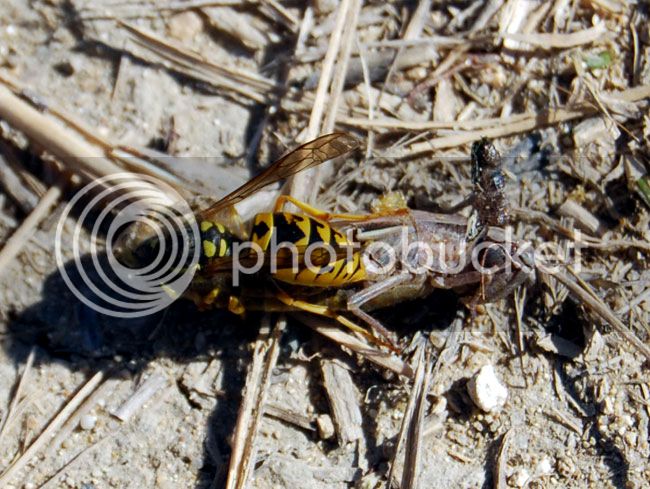REDWOOD
Queen Bee
- Joined
- Oct 17, 2009
- Messages
- 8,381
- Reaction score
- 93
- Location
- swansea south wales
- Hive Type
- 14x12
- Number of Hives
- 10
Probably there was a queen of some sort in the apparently queenless hive

That's what we unfortunately all do from time to time!have had a big problem with wasps in one hive, which has turned out to be queenless and weak.they were also quite aggressive. so decided to merge the weak with stronger hive with a good colony and queen, did all the right stuff , read the books saw the youtube vids just to make sure i did it all right. used the newspaper method between boxes.
and then left them to it.
shock horror now i have loads of dead bees out side hive.
what have i done wrong very very upset over this.
havei just murdered my bees.?????????????

my bees have been being pested for ages now well i see a wasp there and i panic possbly but iv sean them geting in reacently bees dont seam to even try to stop them but i never see the wasp come back out ??????? is that good or bad i thougt bad...... but theres never loads there at most 2 genraly one 2 difrent types of wasp tho that i do no
It is quite possible that these are queen wasps looking for a safe place to hibernate. We have encountered this on quite a few occasions were queen wasps hibernate within a hive, or more precisely the 'cold space nooks and crannies' within a hive. Interestingly they don't bother the bees and the bees seem to ignore them which is something that I've never got my head around.











Really? I'd be interested in how many keepers have experienced overwintering "wasp queens" in their hives.
There are two factors here, one is that "wasp queens" aren't actually hibernating yet either here in France or in the UK and the other is that no functioning honey bee colony would accept them. I suspect kristin that you simply aren't seeing the wasp or wasps leave again.
Some species here are still taking "livestock", Germanica are particularly active.

Chris
Probably there was a queen of some sort in the apparently queenless hive
It's interesting Chris that you so readily compare where you are with the UK. Polistes wasps (as seen in your picture) are exceptionally rare in the UK because they aren't suited to our climate.
I just watched a wasp dismember a bee at the entrance and fly off with the abdomen.
I presume for a quiet sugar snack in peace.......It's nearly November!!!!

The point was if you read the thread that wasps in roofs isn't the same as wasps in the colony proper. which is where you say you frequently find Queen wasps. Something I have never encountered either here in France, Germany or the UK and never heard of this from any of the large number of keepers I have known or communicated with.
I made the simple point that.
There are two factors here, one is that "wasp queens" aren't actually hibernating yet either here in France or in the UK and the other is that no functioning honey bee colony would accept them.
As a side issue, I see no reason why vulgaris, germanica, or any other cavity nesting wasp shouldn't make a nest in a high chalet roof with a vent hole and not cause problems for the bee colony, they can certainly nest "right next door" along with the hornets without any issues.
Chris
Hi: I can never get an answer to this. Is a standard entrance block (entrance 100mm wide by 6mm tall in wood) adequate mouseproofing under a wooden box?Wasps seem fewer here though traps are still catching a few and my entrances are now at normal size. My MB poly hives don't need mouse traps and since I put my wooden hive on top of an under floor entrance a le JBM it doesn't either.
If you still have a lot of wasps leave your defences up. I think you're OK for mice at present.
Have a look at the underfloor entrance. I recommend it
I can't say unequivocally but that's what I have had for two years and no mice
Actually my entrance runs the whole width of the floor and is set back about a quarter of the way back